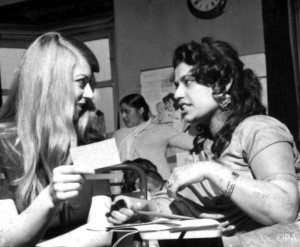Making History Work – Seminar series with AHRC Translating Cultures and Institute for Government
Between March – July 2014 the Arts and Humanities Research Council’s Care for the Future and Translating Cultures research themes and the Institute for Government held 4 joint seminars on ‘Making History Work’ – bringing together academics, senior policy officials and practitioners to consider how history and intercultural learning are used in practice by policy makers and how academia and public policy can better engage each other.
The series did this through the lens of three policy areas: humanitarian and overseas policy, social cohesion policy and fiscal and economic policy. The seminars each started with a 5-minute presentation by 2 academics and 2 officials on their experiences with using history in public policy, followed by 1.5 hours of roundtable discussion. Discussion was lively and candid, with participants drawing on their experiences and highlighting challenges and successes of working together. Based on common themes that emerged from the seminars, IFG and the two AHRC themes have now published a report on the series.
The Making History Work Report (click for PDF) makes a number of recommendations for government as well as for universities and funding bodies about improving the relationship between academics, researchers and practitioners in government roles.
Professor Charles Forsdick, Theme Leadership Fellow for Translating Cultures, highlights these recommendations:
For government
- Policy heads and senior leaders should encourage the use of historical case studies and intercultural comparison in policy making
- History should be integrated more fully in training and development
- Departments should use advisory bodies or individual academics in more systematic ways
- Current initiatives in policy profession improvements should all make more explicit inclusion of historical knowledge and expertise
For universities and funding bodies
- Further reflection is required on the mechanisms by which existing academic research can better be transmitted to Whitehall
- More interaction between academics and policy officials should be encouraged and initiated
- More consideration needs to be given to how academics can balance policy impact work with research, teaching and peer-reviewed publication
- The REF should allow clear recognition and reward of the public policy impact of the individual expert
Professor Andrew Thompson, Theme Leadership Fellow for Care for The Future says: “This report has come at an important time for the UK in terms of the political, economic and social changes that have taken place and others that may follow. Shedding a light on the work that many professionals within the arts and humanities undertake and actively using it to contribute towards public policy is therefore of immense value.”
You might also be interested in Andrew’s article ‘How to talk about immigration, by the 1960s politician who made it his life’s work’, written for The Conversation on 18 Nov 2014.
The piece presents a historical perspective on how UK politics talks about immigration.



